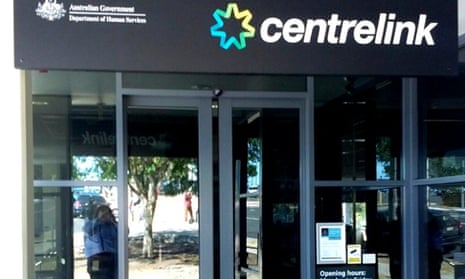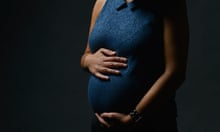Unemployed pregnant women under 30 may go months without income support under proposed changes to Australia’s welfare system.
The government has refused to specify exemptions for pregnant women in their reforms which will see people under 30 go six months at a time without income support.
Pregnant women do not have to look for work in order to get the dole from six weeks before their due date and the same gestation period will likely apply as a quarantine from the reforms.
Exemptions to the proposed changes already include single parents, those deemed not capable of working more than 30 hours a week and people accessing disability employment service.
But when asked by Guardian Australia if pregnant women could go months without income support, a spokeswoman for the social services minister, Kevin Andrews, could not rule it out.
“Encouraging parents to participate in the workforce helps break the intergenerational welfare cycle, and children who grow up in working families are less likely to be unemployed later in life,” she said.
The spokeswoman said regulations known as the jobseeker classification instrument would be used to identify jobseekers who have barriers to employment and allow them to claim benefits.
The instrument does not recognise pregnancy alone as a barrier to employment, unless there are complications, until six weeks before the baby’s due date.
“Job services providers are expected to take into account any advice from a treating medical practitioner, including advice regarding the work capacity of a pregnant woman, when applying job search and activity test requirements,” the spokeswoman said.
When asked specifically a second time if a pregnant woman under-30 would be automatically exempt from six months off income support, she did not respond.
The president of National Welfare Rights Network, Maree O’Halloran, called the lack of exemption “foolish and radical” but said the policy overall was the problem.
According to 2011 data, there were 2600 pregnant women exempted from job search activities in order to get benefits because they were six weeks away from giving birth. O’Halloran said that indicated how many pregnant women could be affected by the six months without income support.
“It is beyond belief they would include pregnant women in that plan,” she said.
“People will quibble that while you’re pregnant you’re healthy enough to work, but anyone living without income support within a nation as affluent as Australia is outrageous.”
She said pregnant women without income support could face being unable to keep medical appointments and could also have housing problems. She said the fundamental policy was wrong and although pregnant people should not be going without income support, nobody in Australia should.
Unemployed people under 30 could go longer than six months without income support if they do not meet job-search requirements when they are not receiving benefits. The legislation is yet to be introduced to parliament and could be subject to change.




Comments (…)
Sign in or create your Guardian account to join the discussion